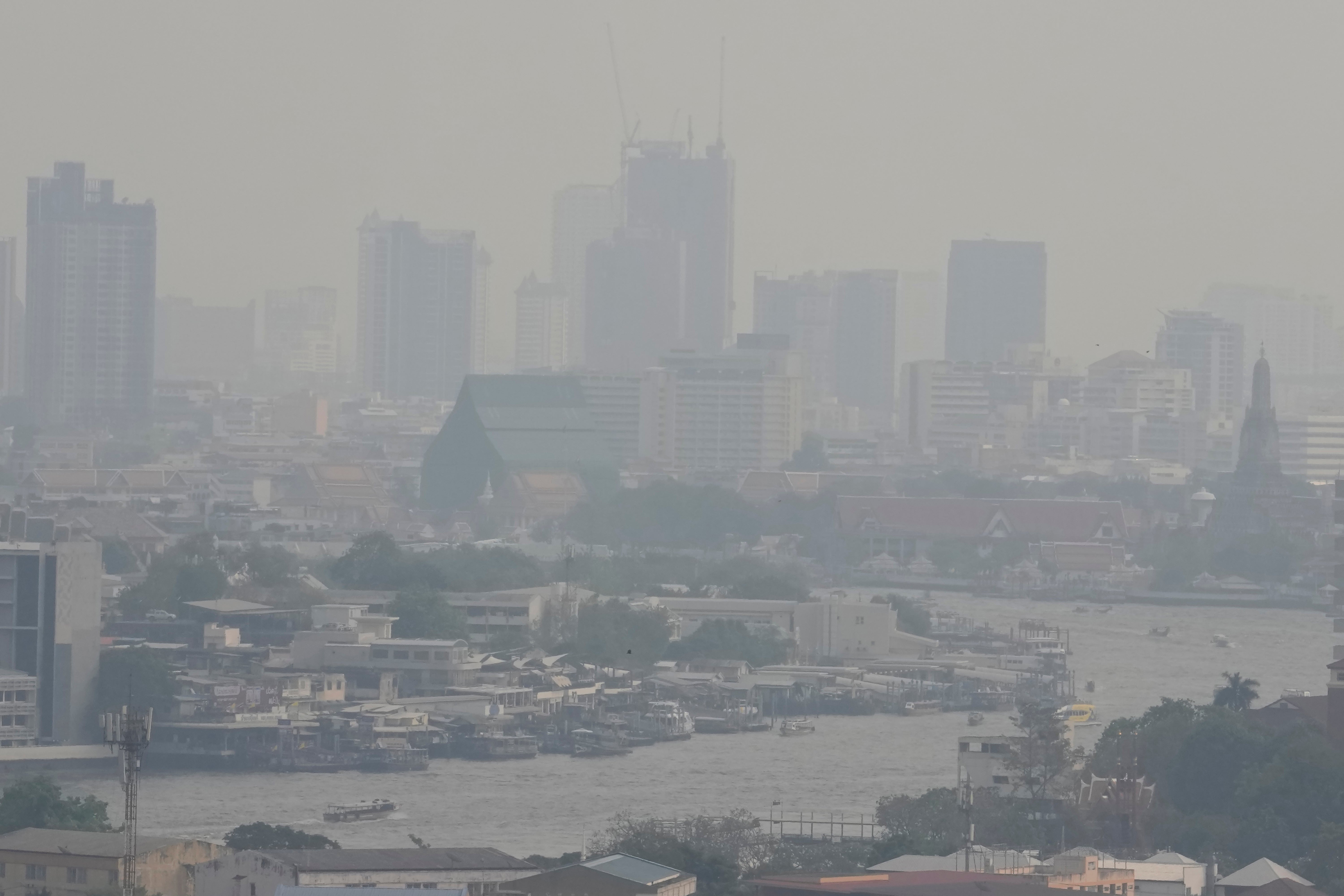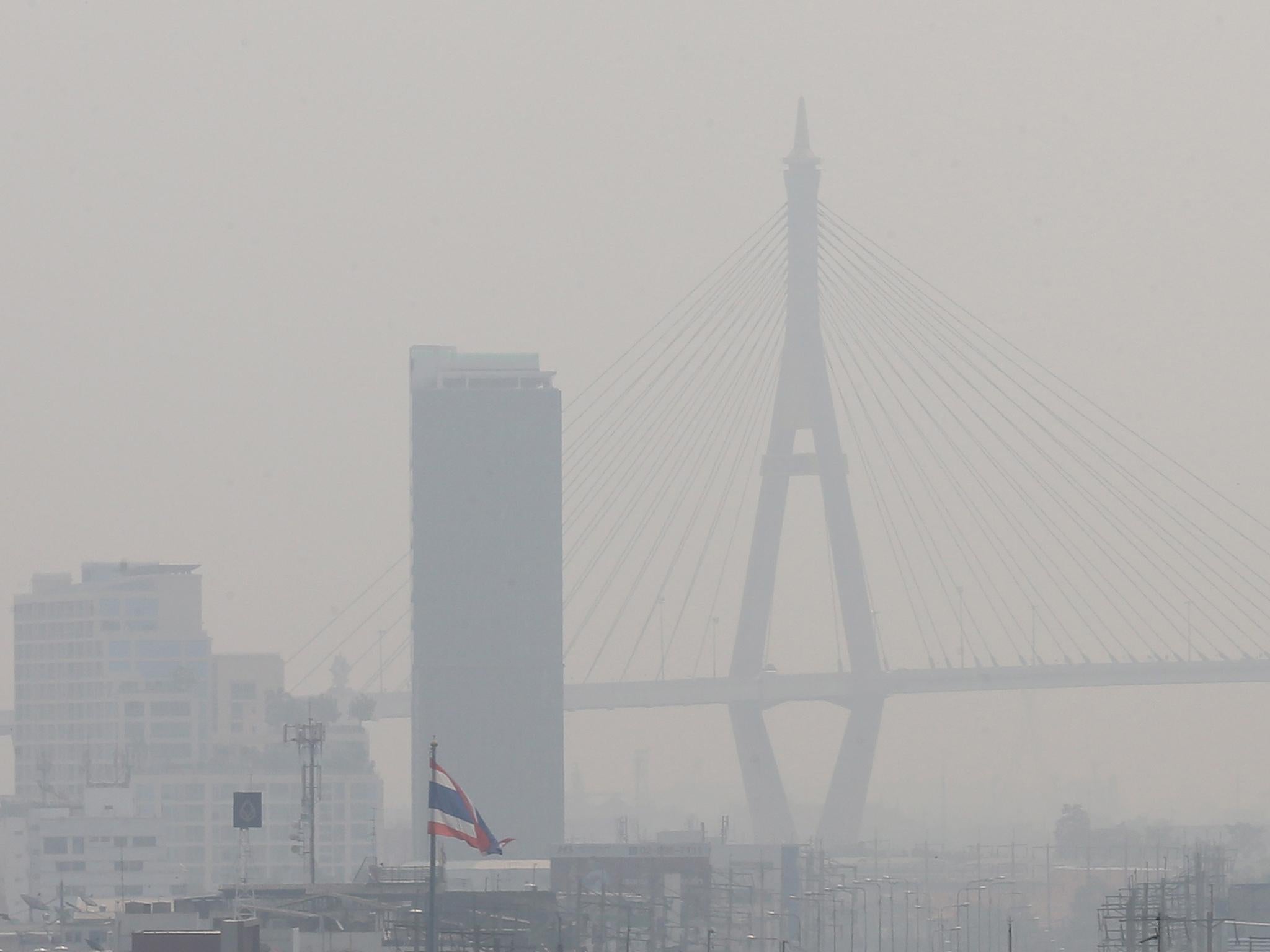Thai workers told to stay at home as toxic smog engulfs city
Pollution is hitting record highs in Bangkok

People in Bangkok have been ordered to work from home for two days as air pollution reached three times the recommended level.
Air pollution has been a problem for many years in Thailand’s north, where the burning of forests and agricultural waste are major contributing factors. But in recent years Bangkok has also begun to suffer greatly with extended periods of high pollution that have led to school closings and other disruptions.
The Department of Pollution Control declared last month that Bangkok had officially entered its annual smog season, but the region has suffered from deteriorating air quality since late last year.
Bangkok’s Air Quality Index measured an unhealthy 156 on Thursday, with readings of over 163 in some areas, prompting the stay-at-home order, according to the city government.
Since Monday, Bangkok’s AQI has ranged from 121 to 160.
The microscopic particles can penetrate deeply into the lungs and then move further into the body, causing both short-term bronchial problems and serious long-term health issues. The World Health Organization’s guidelines say levels of fine particulate matter equal to AQI 56 should not be exceeded for 24-hour average exposures.
The Thai government last year revised its maximum level of fine particulate matter considered safe from an equivalent of AQI 136 down to 105 to be more in line with international standards.

The Department of Pollution Control predicted that air pollution levels in Bangkok will remain unhealthy until Saturday, and that most regions of the country, especially the north and northeast, will experience high levels through the weekend.
The government’s Geo-Informatics and Space Technology Development Agency, which uses satellites for remote sensing, declared that 66 of Thailand’s 77 provinces are suffering unhealthy air quality, with 44 of them considered very unhealthy.
Air pollution is increasingly becoming a political issue in Bangkok, with the middle class growing more unhappy and vocal.
Prime Minister Srettha Thavisin said on X, formerly known as Twitter, that about 25% of Bangkok’s pollution comes from vehicle emissions, adding that working from home is a short-term measure. He did not specify the remaining sources.
He said the next step could be a temporary suspension of construction work and a limit on the number of diesel cars in the inner city.
Join our commenting forum
Join thought-provoking conversations, follow other Independent readers and see their replies
Comments
Bookmark popover
Removed from bookmarks